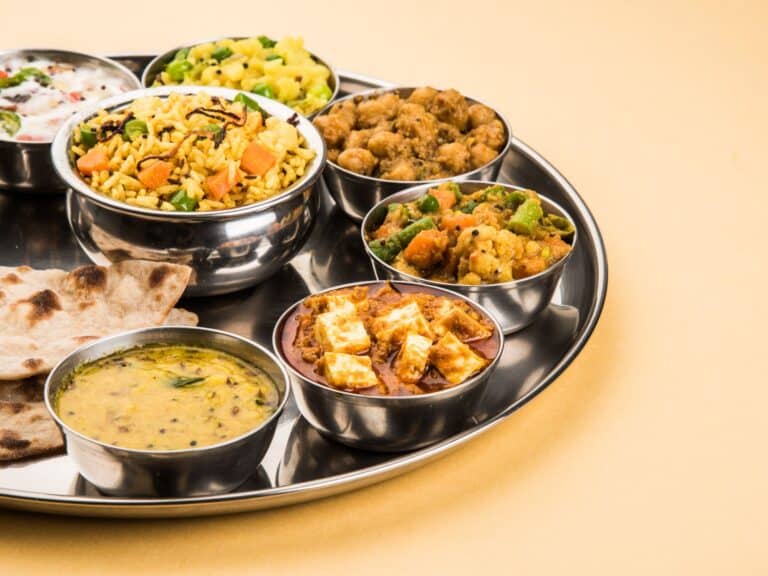Coconut milk, a staple in tropical cuisines, holds a place of reverence not just in the global kitchen but also prominently in East Indian cooking. Known for its rich texture and versatility, it serves as a culinary backbone in many traditional Indian dishes. This creamy elixir is extracted from the grated pulp of mature coconuts, a process that imparts intense flavor and a host of nutritional benefits. Let’s explore why coconut milk is celebrated in Indian kitchens and how it can enhance your health and cooking.
Coconut milk is derived from the white flesh of mature coconuts. The flesh is grated, soaked in hot water, and then strained through a cheesecloth to produce a thick, creamy liquid. This process can be adjusted to produce various consistencies; thick milk for desserts and thin milk for soups and sauces. In Indian cuisine, it’s not just a food ingredient; it’s a cultural symbol, integral to the culinary identities of many regions, particularly in the coastal areas like Kerala and Goa.
Health Benefits of Coconut Milk
1. May Reduce Inflammation: Coconut milk contains antioxidants, such as selenium, which are known for their anti-inflammatory properties. In traditional Indian medicine, coconut milk is often recommended for soothing inflammation and healing ulcers.
2. Immune Support: The lauric acid in coconut milk is known for its antimicrobial properties, which can help fight bacteria and viruses, boosting the immune system—a vital ingredient in the preventative health practices prevalent in Indian Ayurvedic medicine.
3. Brain Health: The medium-chain triglycerides (MCTs) in coconut milk are efficiently converted into ketones by the liver, which can serve as a powerful energy source for the brain. In Indian dietary culture, high-fat ingredients like coconut milk are often recommended for children and the elderly to support cognitive functions.
4. Digestive Support: As a lactose-fWe’d love to hear how you incorporate coconut milk into your cooking! Next holiday season, give someone a gift of love, support, understanding, and care by sharing your favorite coconut milk recipes, tips, and tricks from the Indian subcontinent and beyond. Participate in the conversation below and enrich our community with your culinary insights and experiences with coconut milk! Let’s educate and spread awareness about the health benefits and diverse uses of this wonderful ingredientree alternative to dairy, coconut milk is ideal for the significant portion of the Indian population that is lactose intolerant. Its rich, creamy texture and digestive properties make it a preferred choice for curries, soups, and even sweets.
Coconut Milk in Indian Cuisine
Coconut milk is not just a food ingredient; it’s part of the culinary legacy of various Indian regions. Here’s how it is incorporated in traditional dishes:
- Beverages: In Southern India, coconut milk is used in ‘Sol Kadi’ – a drink made from kokum fruit and coconut milk, known for its digestive properties.
- Soups: The famous ‘Mulligatawny’ soup of Tamil Nadu includes coconut milk as a base, blending local spices and lentils into a rich concoction.
- Curries: From the ‘Meen Moilee’ (fish curry) of Kerala to the ‘Alu Posto’ (potato with poppy seeds) of West Bengal, coconut milk adds depth and creaminess to an array of regional curries.
- Desserts: Coconut milk is a key ingredient in ‘Payasam’, a sweet pudding made during festivals and special occasions across India.
Is It Safe to Drink Coconut Milk Every Day?
While coconut milk is nutritious, it is also high in calories and saturated fat. Consuming it in moderation within a balanced diet is recommended. Daily consumption should be balanced with other nutrient-rich foods to maintain overall health without excessive calorie intake.
Coconut milk is a versatile, flavorful, and nutritious component of Indian cooking and offers various health benefits. Its use in traditional Indian recipes highlights its cultural significance and culinary importance. Whether you’re preparing a spicy curry, a soothing dessert, or a nourishing beverage, coconut milk can elevate your cooking with its rich flavor and creamy texture.






